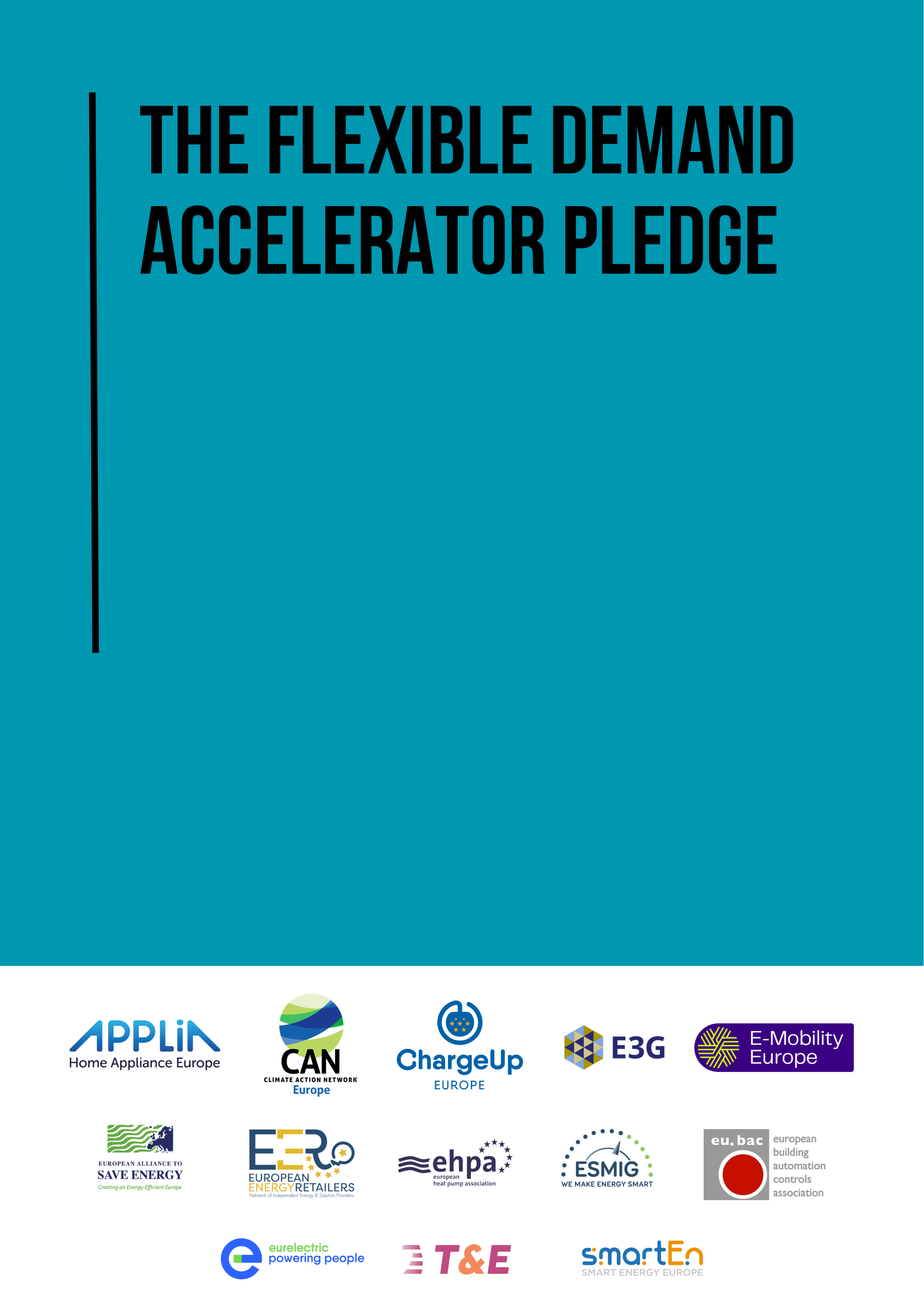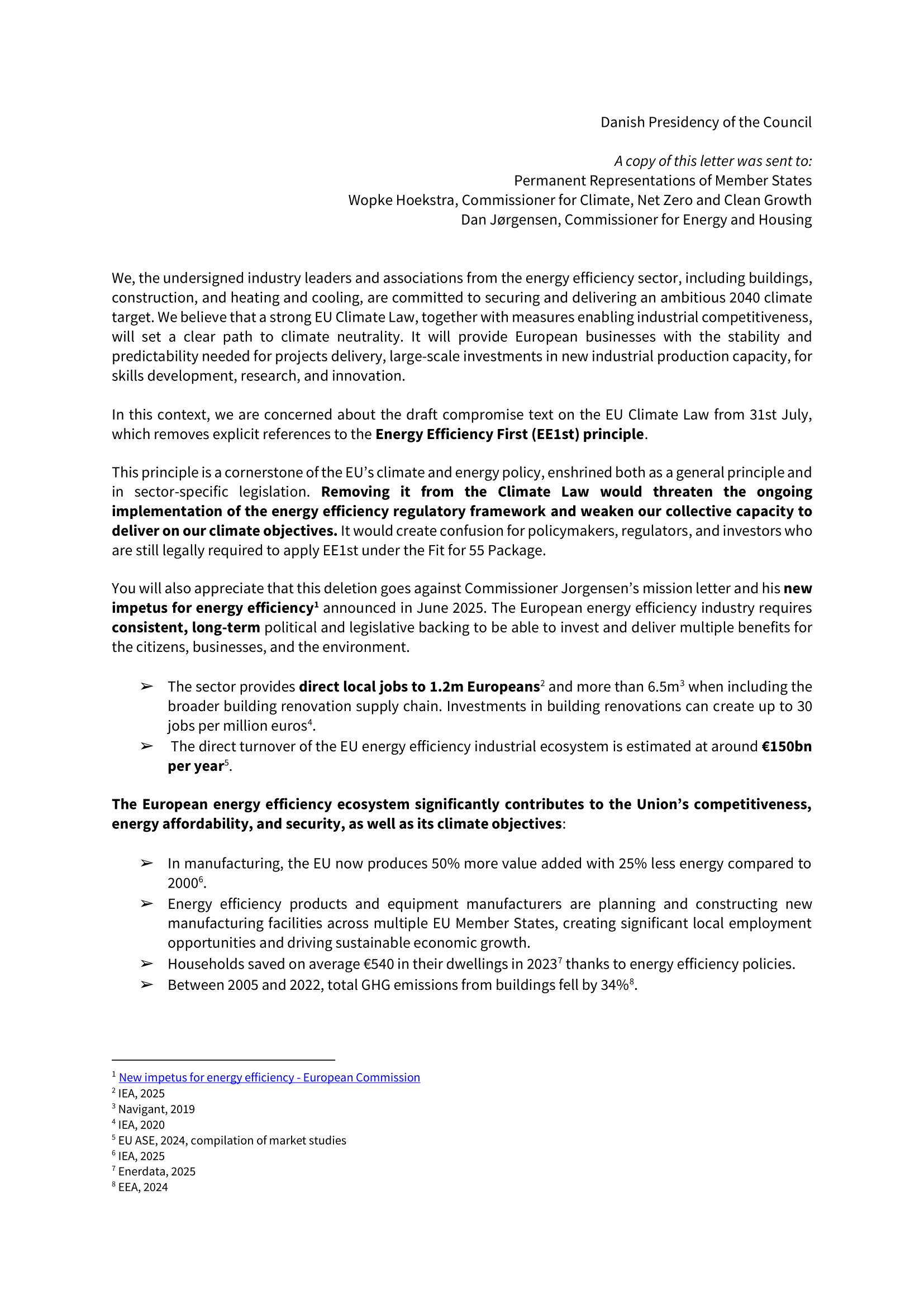The Flexible Demand Accelerator Pledge

Together with a coalition of 13 European business associations and civil society organisations, we have signed the Flexible Demand Accelerator Pledge.
The pledge calls on the European Commission to:
- Embed National Tripartite Dialogues on Flexible Demand in every Member State.
- Ensure all demand-side resources, from homes to factories, can access energy markets on equal terms.
- Align tariffs and incentives with real-time price signals.
- Monitor Member State progress through annual reporting to the Energy Council.
By making demand more flexible, Europe can cut energy waste, reduce costly peak generation and improve grid performance. This is essential to build an energy system that is not only more resilient and affordable but also more energy-efficient and competitive
Read the full pledge here.
In a fast-changing political and economic environment, 2025 was a year of continued efforts to strengthen security, stability, and competitiveness for European businesses.
Throughout the year, our work demonstrated that energy efficiency is not only essential to achieving climate goals, but also a key driver of innovation, energy independence and sustainable long-term growth across Europe.
Strong engagement with policymakers, combined with the successful organisation of the 4th European Energy Efficiency Day, highlighted the importance of collaboration and dialogue in advancing shared objectives. Partnerships across sectors and institutions remained central to delivering impact and shaping effective energy policies.
Looking ahead to 2026, we will intensify our efforts to secure the regulatory certainty that can accelerate the energy transition, while providing businesses with the investment confidence they need and strengthening Europe’s competitiveness.
Read the full Activity Report here.





